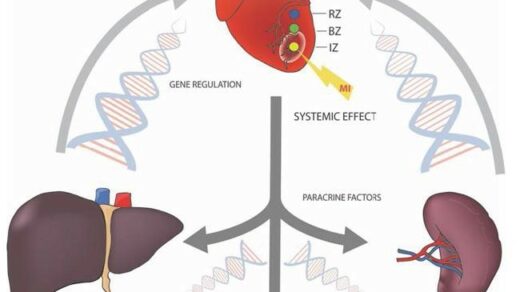This in vitro study represents the first individual comparison of a tier one drug, encorafenib, and two other paradox breaker inhibitors in the treatment of colorectal cancer with BRAF mutations.

The Trending with Impact series highlights publications attracting higher visibility among readers around the world online, in the news, and on social media beyond normal readership levels. Look for future science news and articles about the latest trending publications here.
—
Colorectal cancer (CRC) is a cancer beginning in the colon or the rectum. Among cancers that affect both men and women in the United States, CRC is the second leading cancer killer (likely due to a lack of screening for early detection). This statistic has propelled many scientists over the years to study the disease in order to develop better therapies and treatments.
In previous studies, researchers have found that approximately 10 percent of patients with metastatic CRC present with a BRAF gene mutation. The BEACON clinical trial found enhanced survival for CRC patients presenting with the BRAF mutation and treated with a combination of drugs including encorafenib. Encorafenib is designed to block certain proteins created by the mutated BRAF gene.
Researchers from the United Kingdom’s University of Birmingham were particularly interested in the efficacy of chemotherapeutic drugs and paradox breaker BRAF inhibitors, PLX8394 and vemurafenib, in comparison to encorafenib. The goal of their study was to determine whether PLX8384 and vemurafenib were equal or superior to encorafenib in the treatment of CRC.
Comparing BRAF Inhibitors
Paradox breaker BRAF inhibitors are designed to inhibit RAF dimer formation – known to alter therapeutic response, disease progression, and cell signaling. The team analyzed whether or not the paradox breakers reduce pathway reactivation to enhance potency in treatment of BRAF mutant CRC when compared with the known effects of encorafenib.
In the lab, encorafenib and PLX8384 were found to have similar downstream pathway inhibition and reactivation activity in BRAF mutant CRC. The researchers also observed that they have greater potency than vemurafenib and, in some cell lines, less time-dependent pathway reactivation. In addition to testing BRAF-mutated CRC and comparing three compounds in vitro, the researchers also evaluated their efficacy in BRAF-mutated melanoma. A blunt difference between cell lines treated with vemurafenib was observed. Researchers concluded that the difference in vemurafenib activity was due to absent or low-level EGFR expression in the BRAF-mutated melanoma cell lines, which led to no pathway reactivation.
The team collected data suggesting that there are other reasons beyond pathway reactivation that might limit the efficacy of BRAF inhibition in BRAF mutant CRC, including a variation in BRAF mutation sub-types.
“We have recently reported that response rate, progression-free survival and overall survival is significantly greater in BRAF mutant CRC patients with the BM1 [BRAF mutant one] transcriptional sub-type than the BM2 [BRAF mutant two] sub-type when treated with combined BRAF/MEK/EGFR inhibition.”
Encorafenib and PLX8394 displayed greater potency than vemurafenib, though the degree of pathway reactivation was still somewhat less. The data that they collected in this study represent the first comparative data of encorafenib and paradox breaker inhibitors in BRAF mutant CRC.
Conclusion
“We have shown that the strategy of using a paradox breaker BRAF inhibitor, such as PLX8394, in order to reduce pathway reactivation through reduced RAF dimerization in BRAF mutant CRC is as effective as optimal group one inhibitors, such as encorafenib.”
Authors of the study analyzed the impact of each of these drugs individually and believe that PLX8394 activity should be further investigated in combination with other drugs designed to limit pathway reactivation, such as MEK and EGFR inhibitors. They also found that targeting RAF dimerization in RAS/RAF mutant colorectal cancers is not likely to alter outcomes in targeted therapies without assessing for the unique sub-type of BRAF and KRAS mutations in CRC.
—
Oncotarget is a unique platform designed to house scientific studies in a journal format that is available for anyone to read – without a paywall making access more difficult. This means information that has the potential to benefit our societies from the inside out can be shared with friends, neighbors, colleagues and other researchers, far and wide.
Click here to read the full scientific paper, published in Oncotarget.



